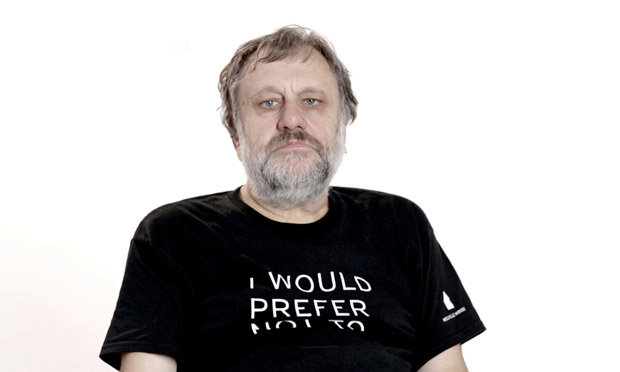 As we encourage the closure of liberal arts colleges and reduce liberal arts programs in colleges and universities to first-year writing programs, we might want to keep in mind that we actually need more programs in the arts and liberal arts not fewer. (Yes, we encourage this behavior.) It is with developed aesthetic sensibilities that our culture saves itself from environmental disaster, a permanent police state, and mob psychology in the streets or in the voting booth. Below is a mission statement for a program in which I would love to be involved. The School for Aesthetic Sensibility The School for Aesthetic Sensibility fosters the education of the imagination in an effort to bring an artist’s sensibility to all aspects of a student's life. Its goal is to educate a citizenry capable of resisting the illusions that the current society presents so that graduates are prepared to employ science and technology (techne = art, Greek) as not in the service of destruction and exploitation but as an opportunity for engaging the imagination to transform the world into a reality composed of the aesthetic sensibility of humans.
0 Comments
 According to Edmund Wilson, in 1912 George Santayana resigned his teaching post at Harvard University and moved back to Spain because Harvard opened its business school. It is logical that the last aristocrat makes his final stand against capitalism. In those days business schools were outside the university in institutions. Today, business schools run the university and its curriculum, and the arts and liberals are being pushed out. It now seems logical, though ironic, that the arts and the liberal arts will need to form institutions outside universities. In order to survive and perhaps counter-act or change the corporatized university and its products, faculty in the liberal arts / humanities, and fine arts need to offer a different path for students interested in valuing life on this planet. This path would not be a counter-culture though it would indeed counter the current culture. However, it would be more an alternative culture an open line of flight that would include acting outside the Baudrillardian cultural fantasy that wastes valuable time on Earth: That doesn’t include such things as the advertising vignettes that capitalist narrative poetry provides as authentic art of living, whether it be Burger King’s, Nike’s Just Do It, or KFC racist seductions. It might even be an enrichment program for graduates entering corporations to change them. It would certainly be a creative class much advertised by PR firms. Such an institution would need to foster critical perspectival thinking, what Northrup Frye long ago called the education of the imagination, and foster an aesthetic sensibility as Marcuse suggests as liberation sensibility. We may then dis-cover that liberal arts education may be live performances in our private, economic, and civic lives as Hannah Arendt writes in The Human Condition. It is my belief that Gilles Deleuze’s “line of flight” idea may lead us to Herbert Marcuse’s destination that amounts to the following: The rational transformation of the world could then lead to a reality formed by the aesthetic sensibility of man. Such a world could (in a literal sense!) embody, incorporate, the human faculties and desires to such an extent that they appear as part of the objective determinism of nature – coincidence of causality through nature and causality through freedom. (30,31) We need more than ever the useless university or institution. The useless university’s interests are in the purer sciences, the deployment of curiosity for its own sake (and not for techno-capitalist products, exploitation, and consumer goods), the development of values for sustainable living, and the creation of useless but vital “products” found in the arts. It seeks what Arendt calls, “The ideals of homo faber, the fabricator of the world, which are permanence, stability, and durability, [that] have been sacrificed to abundance, the ideal of the animal laborans.” She suggests here the re-separation of the conflation of domestic labor, public work, and political action. An institution engaged as its founding principle the investigation and separation of those three dynamics would establish lines of flight away from the totalizing frame that supports the social imagination’s illusion that dominates adult citizens in a “democracy.” The institution would then be able to give practice to Freire’s pedagogy and allow temporal and physical room for reflection and art. Thank you Glenn Lyvers, April Zipser, and other editors of Prolific Press:
For accepting for publication in 2016 my Book-length manuscript “Body Politic.” “Body Politic” will be my fourth book of poems. Approximately one-third of the poems were written (and some published) in the 1970s and 80s so that it may be evident when reading them how my style has developed over the years. Reviewers are welcome. Thanks also to: Solo Flyer; Big Bridge; Pemmican; Trespass; Anomalous; War, Literature, and the Arts; Negative Suck; The Externalist; Interpoetry; E.ratio 15; Gloom Cupboard; Eudaimonia; Dark Sky Magazine; Poydras Review; Fjords Review; Reconfigurations: Poetry and Poetics / Literature and Culture; Nefarious Ballerina; Andrews Review: Cairn 42; Brev Spread; Otolith; Futures Trading; Aji Magazine; Wild Quarterly; Write This; Harbinger Asylum; (Anthology) Teaching as a Human Experience; Assonance; BlazeVox; Transnational Magazine; Former People; Thin Air; Whimperbang. In 2013, John Kerry made the following statement in his farewell speech to the Senate "The unending chase for money I believe threatens to steal our democracy itself. They know it. They know we know it. And yet, Nothing Happens!" Donald Trump recently spoke truth: “When they call, I give. And you know what? When I need something from them, two years later, three years later, I call them. They are there for me. And that’s a broken system.” Tom Engelhardt recently wrote “Is There a New Political System Emerging in this Country?” for Bill Moyers and Company’s website. He remarked, “[W]e could be watching the birth of a new American political system and way of governing for which, as yet, we have no name.” And later he added regarding 9/11 aftermath, “Here in New York, we still were attending memorial services for our firemen and police. But in the nation’s capital, within sight of a smoldering Pentagon that had been struck by one of the hijacked planes, the predator class was hard at work pursuing private plunder at public expense, gold-diggers in the ashes of tragedy exploiting our fear, sorrow, and loss.” Slavoj Zizek wrote in Salon: “[M]ost of the gigantic sums of bail-out money went precisely to those deregulated Randian ‘titans’ who failed in their ‘creative’ schemes and in doing so brought about the meltdown. It is not the great creative geniuses who are now helping lazy ordinary people; rather, it is the ordinary taxpayers who are helping the failed ‘creative geniuses.’” Pope Francis has written, “[M]any professionals, opinion makers, communications media and centres of power, being located in affluent urban areas, are far removed from the poor with little direct contact with their problems.” Lawrence Lessig, Noam Chomsky, Naomi Klein, Chris Hedges, Mike Lofgren, and many others have warned citizens that we are running out of time to change directions in the failed state. The poems in my manuscript address these issues. |
Archives
May 2024
Categories |

 RSS Feed
RSS Feed